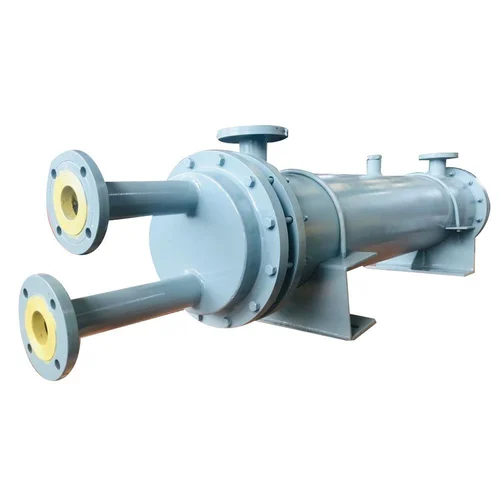Introduction
Tube oil coolers are integral components in maintaining optimal performance in a variety of industrial systems, marine applications, and engine cooling processes. These coolers efficiently manage the temperature of oils by transferring heat from the fluid to a cooling medium, typically water. Their tubular design, combined with advanced heat exchange techniques, allows them to handle high-pressure, high-temperature environments. Tube oil coolers come in a range of configurations, offering flexible solutions for both large-scale industrial applications and compact marine systems. Their ability to cool oils such as lubricating, hydraulic, and transmission fluids makes them a versatile and reliable choice for ensuring the longevity and performance of critical machinery. By selecting the right tube oil cooler based on application needs, industries can enhance operational efficiency and reduce the risk of equipment failure due to overheating.
Longitudinal Flow Advantage
Tube oil coolers often feature a longitudinal flow design, where the oil flows along the length of the tube. This flow pattern helps optimize heat transfer because it ensures that the heat exchange is spread over a longer surface area, preventing rapid temperature build-up at any one point. The oil gradually cools as it moves along the tubes, which is particularly beneficial when dealing with high-viscosity oils, which require more time and surface area to cool effectively. This feature is common in hydraulic systems, marine engines, and other industrial processes that require precise temperature control.
Multi-Pass Design Capability
Tube oil coolers can be equipped with a multi-pass design on the tube side. This means the oil can flow through the tubes several times, increasing its contact with the cooler surface, and thereby improving the heat transfer efficiency. By making multiple passes, the cooler can reduce the oil temperature significantly without needing a larger unit. This makes multi-pass tube coolers ideal for systems where space is limited, such as marine applications or compact industrial machinery, while still achieving high cooling performance. Additionally, the multi-pass design helps in maintaining the required oil flow rates.
Modular Construction for Scalability
Many tube oil coolers are designed with a modular construction, meaning the system can be expanded or adapted based on cooling requirements. Modular units allow for the addition or removal of cooling modules without having to replace the entire cooler. This makes tube oil coolers a scalable solution, ideal for systems that may experience fluctuating or growing cooling demands. For example, a small industrial engine could start with a single module, while a large marine vessel could require multiple modules to meet the cooling needs of larger engines or auxiliary systems. Modular systems provide the flexibility to adjust to future requirements without major redesigns.
Resistant to Pressure Surges
The robust tubular structure of tube oil coolers is designed to withstand sudden pressure surges, which are common in applications like hydraulic power systems or heavy-duty marine engines. These pressure fluctuations can cause stress on cooling components, but tube oil coolers are specifically designed to handle these situations, ensuring continuous operation without failures. Their durability under high-pressure conditions makes them ideal for dynamic environments where systems are constantly exposed to varying operational conditions.
Better Flow Distribution
In tube oil coolers, internal baffles and well-designed tube arrangements ensure the uniform distribution of both the oil and cooling water or fluid. This uniform flow prevents the formation of hot spots, which can compromise the efficiency of heat exchange and lead to uneven cooling. With optimized flow paths, the oil remains in constant motion around the cooling tubes, maintaining consistent heat transfer across the entire system. This feature is especially beneficial in applications such as engine cooling and hydraulic systems, where maintaining consistent operational temperatures is crucial to system reliability and longevity.
Customizable Tube Materials
The materials used for the tubes in a tube oil cooler are often customizable, allowing the system to be tailored to the specific fluid being cooled. Materials like stainless steel, titanium, copper-nickel, and carbon steel can be selected based on factors like corrosion resistance, thermal conductivity, and fluid compatibility. For example, titanium is ideal for applications involving seawater cooling, where resistance to corrosion is a primary concern. Copper-nickel alloys are commonly used in marine applications because of their excellent resistance to seawater corrosion and high thermal conductivity. Stainless steel and carbon steel are commonly used for their strength and ability to handle higher pressures and temperatures.
Designed for Harsh Environments
Tube oil coolers are built to endure harsh environments, including exposure to saltwater in marine applications or high dust levels in industrial machinery. Their materials and construction are chosen to prevent degradation from environmental factors, such as corrosion, chemical exposure, and vibration. For example, marine-grade coatings or alloy materials can be used to protect the cooler against the abrasive effects of seawater and prevent the formation of rust. These features make tube oil coolers a reliable solution for systems operating in challenging conditions, ensuring that they continue to perform efficiently even in the toughest environments.
Conclusion
Tube oil coolers play a pivotal role in safeguarding the efficiency and longevity of machinery across a wide range of applications. Their robust design, combined with features like multi-pass flow configurations, customizable materials, and easy maintenance, ensures they meet the demanding requirements of high-performance systems. Whether in marine engines, hydraulic systems, or industrial machinery, tube oil coolers provide reliable and effective heat management, enabling equipment to run smoothly under high-pressure and high-temperature conditions. Their adaptability, durability, and easy scalability make them indispensable in preventing overheating, reducing wear and tear, and ultimately improving the operational lifespan of critical systems. Investing in the right tube oil cooler guarantees enhanced system reliability, minimized downtime, and long-term operational cost savings.

